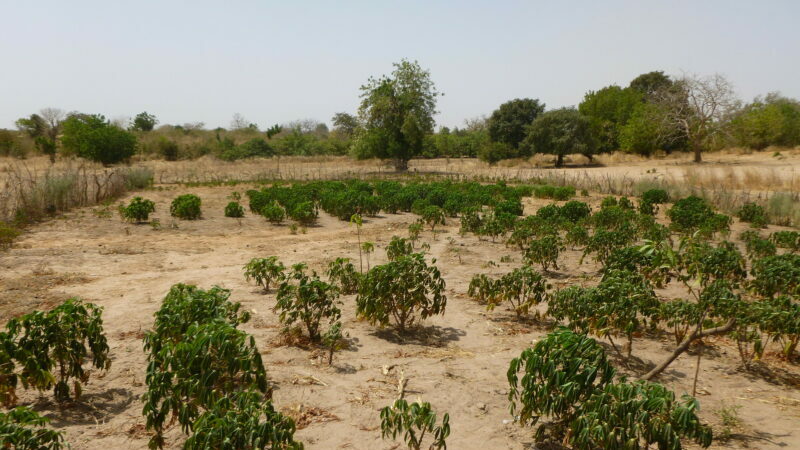Agriculturalists in government, the private sector, and development organisations in Senegal have an appetite for climate information to assist with planning, in order to make the sector more resilient in the face of anticipated climatic changes.
But they often find this information too technical and inaccessible, or too general to be useful for local-level planning. A new online climate information tool has been designed to bridge this gap, and training in how to use the tool is set for technical advisors in this important West African agricultural producing country later in 2020.

The online climate tool, CLIMAP portal.
The CLIMAP portal allows users to customise climate and agriculture projections for Senegal by setting parameters for crop type, temperature, and rainfall in the online tool. The user then applies one of three climate scenarios, according to a timeframe of their choosing between now and 2100. These climate scenario options are framed as ‘optimistic’ (one that assumes a lowering of carbon emissions, which slows future global heating), a medium emissions scenario, and a ‘worst case’ scenario, which assumes emission rates continue on their current trajectory.
The online tool then generates map and graph outputs which show the user what the likely climatic conditions will be for a region’s crops, or what the crop yields might be in the specific year the user requested.
The tool is geared towards technical advisors and similarly skilled staff within Senegalese sub-national government or administrative bodies, as well as civil society, private companies, international organisations and environmental consultancies. The information the site generates is intended to assist with regional adaptation planning, outreach, lobbying, strategic and operational planning, and research.
‘The portal was developed to help decision-makers integrate climate information into agricultural development planning,’ explains Dr Youssouph Sane from the Agence Nationale de l’Aviation Civile et de la Météorologie (ANACIM) in Dakar, Senegal.
Sane is also part of AMMA-2050, a collaboration of climate researchers who helped develop the online tool together with various partners in Senegal, France, and the United Kingdom.
‘We designed it to provide technical information to decision-makers so they can better integrate climate change into local development planning.’
The French Institute of Research for Development (IRD) led the portal development, and funding came from the French Ministry of Foreign Affairs and the France Ministry for an Ecological and Solidary Transition (MTES).
COVID-19 temporarily delays training on how to use the tool
AMMA-2050 had a roadshow scheduled across five regions in Senegal for the first half of 2020, with train-the-trainer workshops aimed at national and sub-state technical advisers and researchers on how to use the climate information portal.
‘The objective of the training is to share the portal with officials working at national and sub-national levels, and across various government departments, as well as key research institutions, so that they can use this tool to integrate climate information into their agricultural planning,’ explains Emma Visman, a senior knowledge exchange officer at UK Centre for Ecology and Hydrology, the institution coordinating for this FCFA-funded project.
However, the training has to be rescheduled in response to the restrictions on movements during the COVID-19 pandemic. Movement between regions within Senegal is currently restricted, while key partners from France, who would be instrumental in running the training, are also not currently able to travel to West Africa.
Since the tool is online, some training may be able to be done remotely, according to Visman, but face-to-face workshops would be more effective. Some departments may also have insufficient internet access to allow for online training.
AMMA-2050 has an extension to continue its work in Senegal until March 2021 and may be able to reschedule the training to be done after the Senegalese rainy season, from June to October, which is when many of the national meteorological agency staff and agriculture technical experts are tied up with operational matters.
For more information on the CLIMAP portal, read the journal article – Current needs for climate services in West Africa: Results from two stakeholder surveys.
AMMA-2050 (African Monsoon Multi-disciplinary Analysis 2050) research project aims to support decision-makers in West Africa to integrate this knowledge into climate-sensitive decisions.
This article was written by Leonie Joubert as part of a series covering the science produced by various FCFA projects, and introducing some of the people behind it.
This post was sponsored by Future Climate for Africa. See our editorial guidelines for what this means.
